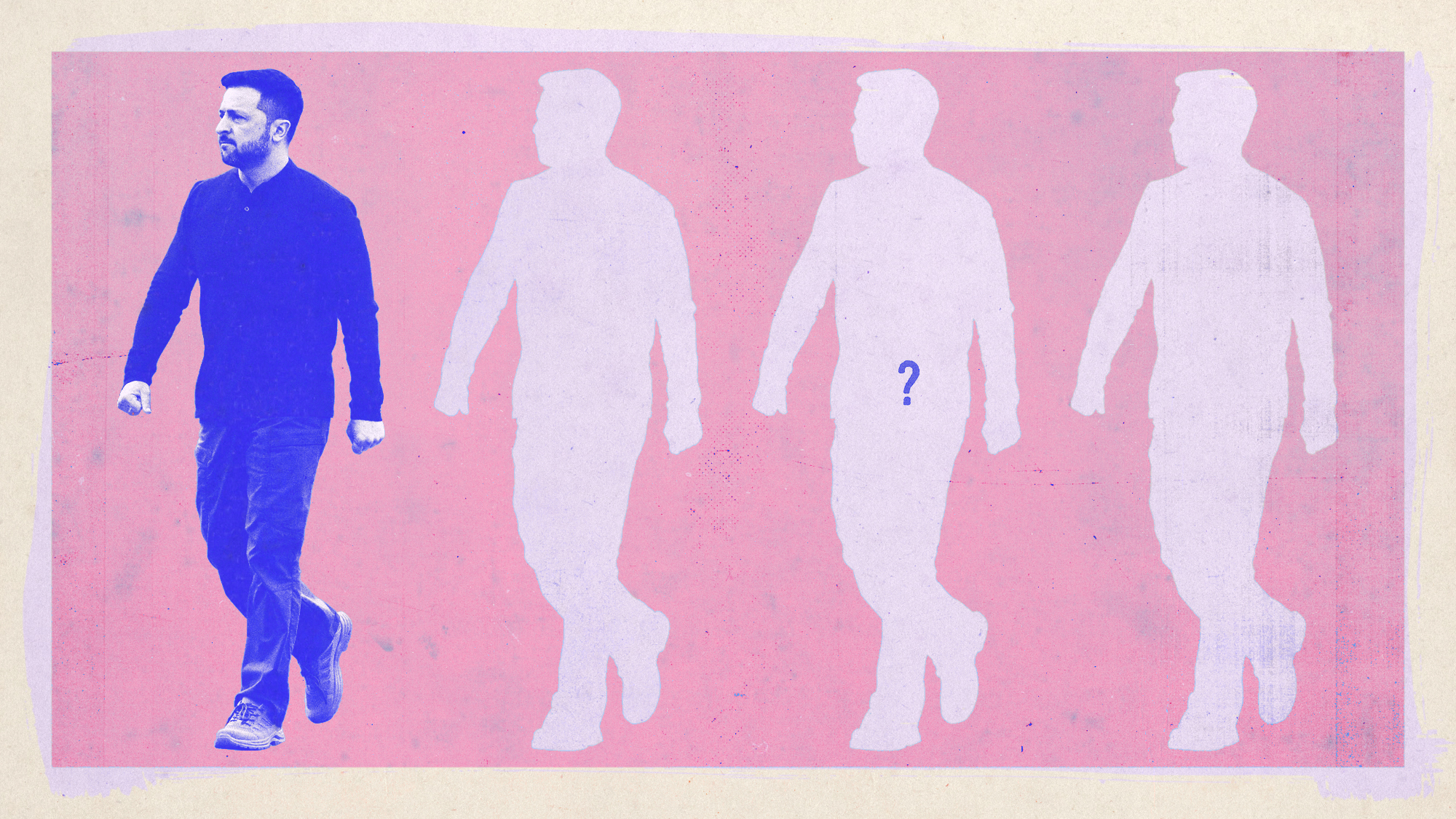Half of all males in Western Europe 'descended from one man'
Genetic study of 1,200 men traces their family tree back to powerful Bronze Age 'king'

Half of all males in Western Europe are descended from one man, a Bronze Age "king" who lived 4,000 years ago, a new study by genetic scientists claims.
The monarch is believed to be one of the earliest people to take power in Europe following the Stone Age.
According to the Daily Telegraph, it is likely he was able to wield great power due to his control of new technologies such as wheeled transport, which led to the first examples of organised warfare.
Subscribe to The Week
Escape your echo chamber. Get the facts behind the news, plus analysis from multiple perspectives.

Sign up for The Week's Free Newsletters
From our morning news briefing to a weekly Good News Newsletter, get the best of The Week delivered directly to your inbox.
From our morning news briefing to a weekly Good News Newsletter, get the best of The Week delivered directly to your inbox.
"He was part of a new order which emerged in Europe following the Stone Age," says the paper. "Sweeping away the previous egalitarian Neolithic period and replacing it with hierarchical societies which were ruled by a powerful elite."
Although it is not known who the king was, the scientists say he must have existed because of genetic variation in today's European populations
Dr Chris Tyler-Smith, who led the study, which has been published in the Nature Genetics Journal, told the Telegraph: "In Europe there was huge population expansion in just a few generations. Genetics can't tell us why it happened but we know that a tiny number of elite males were controlling reproduction and dominating the population."
He added: "Half of the Western European population is descended from just one man. We can only speculate as to what happened. The best explanation is that they may have resulted from advances in technology that could be controlled by small groups of men."
The study analysed sequence differences between the Y chromosomes of more than 1,200 men from 26 populations around the world using data generated by the 1000 Genomes Project. As the chromosome is passed down the male line, mutations can reveal how the men are linked, allowing the researchers to go back generations.
The findings also corroborate the theory that all modern humans evolved out of Africa.
"We see an origin of Y lineages in Africa and a massive expansion in Europe and Asia 50,000-55,000 years ago, just after the time when humans are proposed to have migrated out," Dr Tyler-Smith told the Daily Mail.
The data suggests a "gene flow between Africa and nearby regions of Asia, 50,000 to 80,000 years ago" which "supports the theory that people returned and moved around", says the newspaper.
A free daily email with the biggest news stories of the day – and the best features from TheWeek.com
-
 Quiz of The Week: 12 – 19 July
Quiz of The Week: 12 – 19 JulyHave you been paying attention to The Week's news?
-
 Do we need more right-wing scientists?
Do we need more right-wing scientists?Talking Point Academics have a 'responsibility' to demonstrate why research matters to people who are not politically left-leaning, says Wellcome boss
-
 The week's best photos
The week's best photosIn Pictures A missile garden, a line of lava, and more
-
 One year after mass protests, why are Kenyans taking to the streets again?
One year after mass protests, why are Kenyans taking to the streets again?today's big question More than 60 protesters died during demonstrations in 2024
-
 What happens if tensions between India and Pakistan boil over?
What happens if tensions between India and Pakistan boil over?TODAY'S BIG QUESTION As the two nuclear-armed neighbors rattle their sabers in the wake of a terrorist attack on the contested Kashmir region, experts worry that the worst might be yet to come
-
 Why Russia removed the Taliban's terrorist designation
Why Russia removed the Taliban's terrorist designationThe Explainer Russia had designated the Taliban as a terrorist group over 20 years ago
-
 Inside the Israel-Turkey geopolitical dance across Syria
Inside the Israel-Turkey geopolitical dance across SyriaTHE EXPLAINER As Syria struggles in the wake of the Assad regime's collapse, its neighbors are carefully coordinating to avoid potential military confrontations
-
 'Like a sound from hell': Serbia and sonic weapons
'Like a sound from hell': Serbia and sonic weaponsThe Explainer Half a million people sign petition alleging Serbian police used an illegal 'sound cannon' to disrupt anti-government protests
-
 The arrest of the Philippines' former president leaves the country's drug war in disarray
The arrest of the Philippines' former president leaves the country's drug war in disarrayIn the Spotlight Rodrigo Duterte was arrested by the ICC earlier this month
-
 Ukrainian election: who could replace Zelenskyy?
Ukrainian election: who could replace Zelenskyy?The Explainer Donald Trump's 'dictator' jibe raises pressure on Ukraine to the polls while the country is under martial law
-
 Why Serbian protesters set off smoke bombs in parliament
Why Serbian protesters set off smoke bombs in parliamentTHE EXPLAINER Ongoing anti-corruption protests erupted into full view this week as Serbian protesters threw the country's legislature into chaos